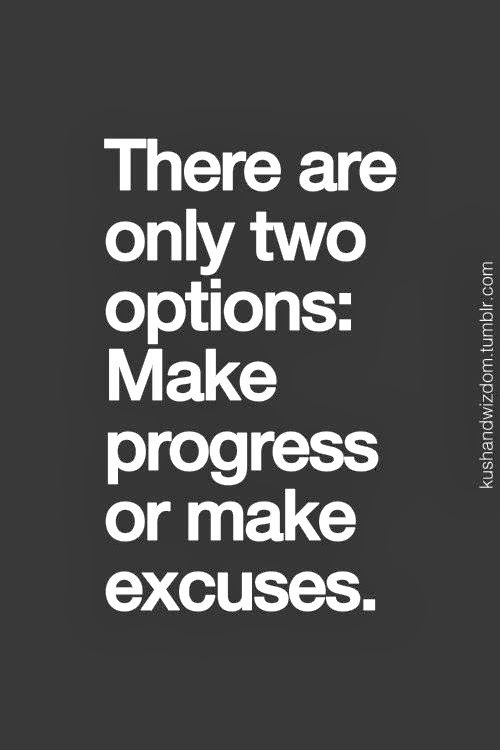olCoach's Corner
Monday, December 2, 2013
Mentally strong people don’t feel entitled to things in life.
They weren’t born with a mentality that others would take care of
them.
They weren't born with idea owes them something.
Instead, they look for opportunities based on their own merits.
MENTALLLY strong people have healthy habits.
They manage their emotions, thoughts, and behaviors in ways that
set them up for success in life.
Check out these things that mentally strong people don’t do so
that you too can become more mentally strong.
1. They Don’t Waste Time Feeling Sorry for Themselves
Mentally strong people don’t sit around feeling
sorry about their circumstances or how others have treated them. Instead, they
take responsibility for their role in life and understand that life isn’t
always easy or fair.
2. They Don’t Give Away Their Power
They don’t allow others to control them, and
they don’t give someone else power over them. They don’t say things like, “My
boss makes me feel bad,” because they understand that they are in control over
their own emotions and they have a choice in how they respond.
3. They Don’t Shy Away from Change
Mentally strong people don’t try to avoid
change. Instead, they welcome positive change and are willing to be flexible.
They understand that change is inevitable and believe in their abilities to
adapt.
4. They Don’t Waste Energy on Things They Can’t Control
You won’t hear a mentally strong person
complaining over lost luggage or traffic jams. Instead, they focus on what they
can control in their lives. They recognize that sometimes, the only thing they
can control is their attitude.
5. They Don’t Worry About Pleasing Everyone
Mentally strong people recognize that they don’t
need to please everyone all the time. They’re not afraid to say no or speak up
when necessary. They strive to be kind and fair, but can handle other people
being upset if they didn’t make them happy.
6. They Don’t Fear Taking Calculated Risks
They don’t take reckless or foolish risks, but
don’t mind taking calculated risks. Mentally strong people spend time weighing
the risks and benefits before making a big decision, and they’re fully informed
of the potential downsides before they take action.
7. They Don’t Dwell on the Past
Mentally strong people don’t waste time dwelling
on the past and wishing things could be different. They acknowledge their past
and can say what they’ve learned from it. However, they don’t constantly relive
bad experiences or fantasize about the glory days. Instead, they live for the
present and plan for the future.
8. They Don’t Make the Same Mistakes Over and Over
MENTALLY strong people accept responsibility for
their behavior and learn from their past mistakes. As a result, they don’t keep
repeating those mistakes over and over. Instead, they move on and make better
decisions in the future.
9. They Don’t Resent Other People’s Success
Mentally strong people can appreciate and
celebrate other people’s success in life. They don’t grow jealous or feel
cheated when others surpass them. Instead, they recognize that success comes
with hard work, and they are willing to work hard for their own chance at
success.
10. They Don’t Give Up After the First Failure
Mentally strong people don’t view failure as a
reason to give up. Instead, they use failure as an opportunity to grow and
improve. They are willing to keep trying until they get it right.
11. They Don’t Fear Alone Time
Mentally strong people can tolerate being alone
and they don’t fear silence. They aren’t afraid to be alone with their thoughts
and they can use downtime to be productive. They enjoy their own company and
aren’t dependent on others for companionship and entertainment all the time but
instead can be happy alone.
12. They Don’t Feel the World Owes Them Anything
Mentally strong people don’t feel entitled to
things in life. They weren’t born with a mentality that others would take care
of them or that the world must give them something. Instead, they look for
opportunities based on their own merits.
13. They Don’t Expect Immediate Results
Whether they are working on improving their
health or getting a new business off the ground, mentally strong people don’t
expect immediate results. Instead, they apply their skills and time to the best
of their ability and understand that real change takes time.
Wednesday, November 20, 2013
5 Lessons Coachs
Can Learn From Philosopher Friedrich Nietzsche
Inspiration for entrepreneurs?
Turns out, you can learn a lot about running a business from Friedrich Nietzsche, the German philosopher and philologist who turned Romantic thinking on its head. He actually had some ideas that provide a helpful path for entrepreneurs.
Just look at his overall philosophy of life affirmation: Essentially that says we shouldn't let all the ideas and doctrine around us and let it drain our energy. Isn't one of the essential ingredients of true entrepreneurism the willingness to let go of doctrine and seek our own way?
Here are five specific concepts by Nietzsche that still resonate for business leaders today:
1. Philosophizing with a hammer
In his 1889 book Twilight of the Idols, Nietzsche philosophized about challenging -- or taking a "hammer" to -- our idols. This is central thinking behind an entrepreneurial idea: Idols are the status quo, or the areas most of the market believes can't be changed. Often, though, the willingness to test the infallibility of a concept shows that nothing is immune from improvement. That leads to opportunity.
2. Creative chaos
It was in the 1883 novel Thus Spoke Zarathustra: A Book for All and None, that Nietzsche, in advancing his concept of the ubermensch, writes, “I tell you: One must still have chaos in oneself, to give birth to a dancing star.” There has always been a correlation among creativity, drive and a little bit of nuttiness, particularly in entrepreneurs. After all, you have to be a little crazy to quit your job, upend your life and give yourself over to a business. This chaos feeds creativity, and we know that ideas build businesses.
3. Finding a father
Nietzsche famously said, “Whoever does not have a good father should procure one.” Nietzsche's own father, a Lutheran minister, died when he was five years old, yet he had a profound effect on his life. Only the son of a preacher could hate religion with the fervor that Nietzsche brought. But, for entrepreneurs, the “father” is interchangeable with a mentor. Businesses are not easy to run, particularly for the creative types. Often, they succeed because executives seek a mentor or even hire a coach.
4. Future, present, past
Nietzsche believed that “the future influences the present as much as the past.” It is one thing to look to the past to find problems a business can solve. It is quite another to develop a plan to correct those problems. Understanding and being able to articulate your personal and business goals is often cited as a key to success. Visibility about markets and customers is essential. Understanding where you want to be helps you to make the right decisions now.
5. Getting Stronger
There is a probably no more cited quote of Nietzsche (often misquoted, actually) as this, also from Twilight of the Idols: “Out of life's school of war: What does not kill me makes me stronger.” (Yes, it was Nietzsche, not Kelly Clarkson.) Business leaders learn from their mistakes. Often, the larger the blunder, the more experience one gains. Also, getting knocked down by a competitor, or engaging in a battle with business partners, focuses the mind on revenge -- in a constructive way, of course. Failure and losing can lead to valuable soul-searching and victories in the future.
Tuesday, November 12, 2013
ol Coach's Keys
Real "WINNING" is on the scoreboard in your heart, not
the one counting points.
Did you play your best? Did
you give it everything you had? Only you know the real score....winning is the
effort you put into everything you do.
Having fun is the key to giving your best effort.
You have the most fun at
anything when you play your best - and you play your best when you are having
the most fun. Playing is the most
natural thing we do.
Doing your best requires practice.
Riding a bike didn't happen by
itself. You practiced. You fell. You got back up again and practiced some more.
You fell again. You got back up and soon you
were riding and having fun. You cannot teach anyone to get back up and try
again. The will to keep practicing comes
from within.
Practice teaches skills and patience.
Every time you practice you
get a little better. Some days a little more better than before, but never too
much at any one time. The more you practice, the
more your little bits add up. So, that before you know it, your little bits
have grown into a huge amount of
better.
The hardest opponent is always yourself.
Who doesn't want to get up in
the morning, do their homework, wash the dishes, go to soccer practice? Who is the one who blames
others and everything else for our not having fun? Who is always around when
things are not going right? Hint: look in the mirror.
All the challenges we face, teach us who we are and what we are
made of....
Every game, every day is a
new challenge. And how we respond to new challenges is a direct result of how
well we prepare. Hard, practices
forge strong wills and
confidence. When facing equally prepared opponents, it comes down to who is only focused on giving more effort.
A team will make you better by pushing when needed, and catching
when falling.
Your teammates know you as
well as your family. They bring out the best and the worst. It is a special
moment when all of you are struggling together to achieve the same goal that
you can look at each other in the eye and with respect, say well done - we couldn't
have done it without you.
Honor the Game, play hard, play fair, play your best.
The game does not give its
rewards and secrets easily. It demands you dig deep and play with your highest
effort. Leave the weather, the field,
the opponent, the crowd, the pain and all distractions and excuses behind. Only
then will the game honor you.
Sportsmanship on the field - is showing that being a good person
is as important as playing your best.
The good sport understands
that without an opponent to push you and make you give your best effort, you
would never know what you have learned, or what you need to learn get better at
- even worse - there would be no game without opponents. Therefore, the good
sport always honors every game, challenge, opponent, team and especially your
family with every show of respect.
All your Coach's have something to teach, but the best Coach is
always your own inner voice.
Just listen.
Subscribe to:
Posts (Atom)





